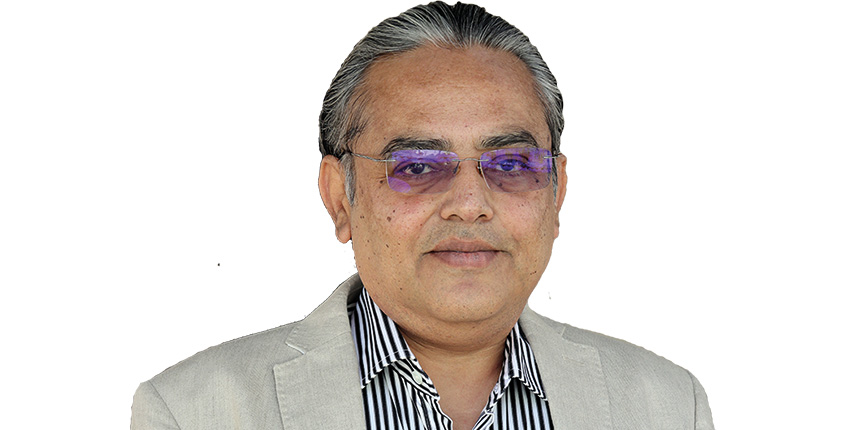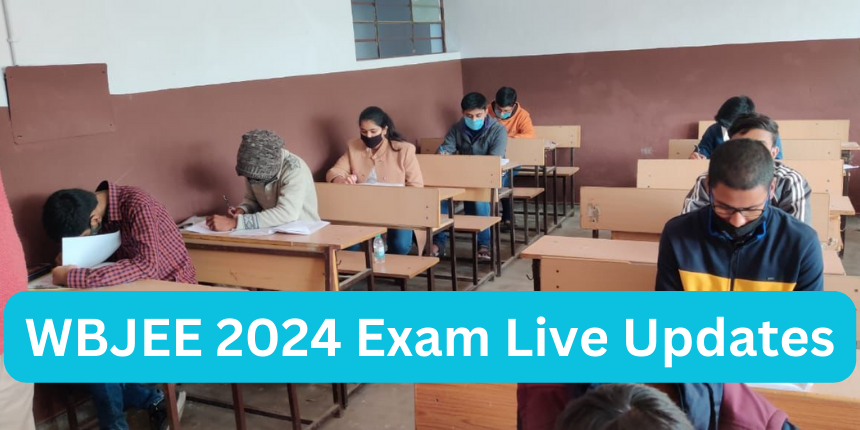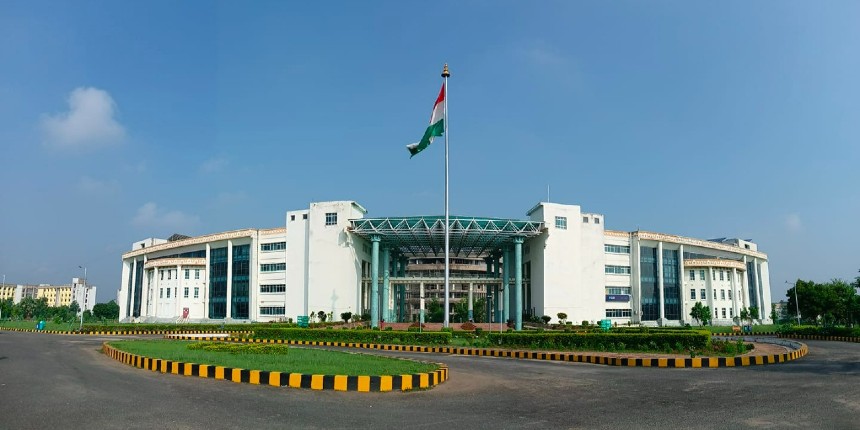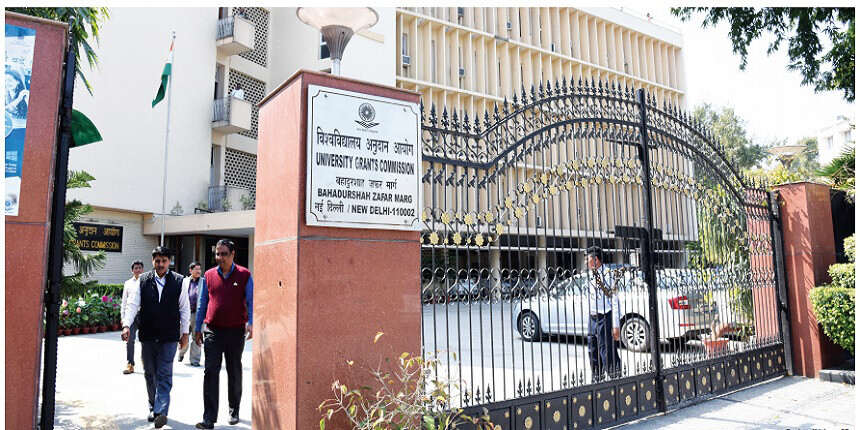‘We want to become a global institute in 10 years’: NLU Meghalaya VC
NLU Meghalaya has not joined CLAT and will be conducting its own admission tests for the first few years.
 NLU Meghalaya will not be opting for CLAT in the first couple of years (Image: NLU Meghalaya)
NLU Meghalaya will not be opting for CLAT in the first couple of years (Image: NLU Meghalaya)Atul Krishna | January 17, 2024 | 03:37 PM IST
NEW DELHI: The National Law University (NLU) Meghalaya began its first academic year from 2023. Its founding vice-chancellor, Indrajit Dube, spoke to Careers360 about how NLU Meghalaya’s focus on personalised learning, flexible courses and research on indigenous cultures sets it apart from other NLUs. Edited excerpts below.
Q. As a new NLU, what will your institution’s focus be?
A. One is personalised learning. It allows students to choose what they want to learn. We have redefined the law curriculum within the prescribed norms of the Bar Council of India (BCI) to give students the option to either be in litigation or use law to support another career.
We have started BA in Policy Science and LLB (Hons) as well as BBA in Fintech and BS in Data Science and Law. Elsewhere, the integrated five-year programme completes the domain syllabus in two years and then the law syllabus begins. But here, we have a trimester system. In the first trimester, you study around nine subjects and understand where your interest lies.
In the second trimester, all domains are taught parallelly with law. So, students will be taught three subjects of the domain and three subjects of law, and that will continue till the final semester.
Another important aspect of personalised learning is the non-core programme. This includes many advisory courses. If you have interest in a specific domain – say, journalism – one can keep opting for these advisory courses and start building expertise in it.
Unlike other universities where they give you a very straightforward programme structure, here it is mostly based on your choice. So, even if we are in the same programme, our skills-set may be different by the time we complete the course.
Students can also take a trimester off at the end of the fourth year in order to do research, or work for consultancies, the government or the judiciary. Credits will be allocated to students on the basis of their work.
At the postgraduate level, currently, we have LLM in Corporate Law and LLM in Criminal Law. But we are introducing a new, one-of-a-kind programme which is MSc in Policy Science Analytics. We are combining policy and data science and bringing it together in an analytical course.
We are also introducing the concept of immersive learning. There will be Artificial Intelligence-assisted analysis of students’ aptitude. We are in the process of setting it up.
Q. What is the admission process and how has the response been?
A. We hold our own admission test. For the UG level it is MEG UAT and for postgraduate courses it is MEG PAT. We want more students from across the country and are advertising in other states as well.
Our university has not formally joined CLAT because our courses are number-heavy and the current format of CLAT does not examine that part. We may join eventually, but for the first couple of years, we will be carrying out our own tests.
We had opened admissions for only about three weeks and currently, we have around 50 students. Many left the institution they were already enrolled in to join here.
Q. How do the fees compare with other NLUs?
A. We charge a highly subsidised fee of Rs 1.75 lakh. If you look at other NLUs or similar colleges, they charge more than Rs 3 lakh per year. Our objective is very clear: education should be accessible. So, we have created a need-based financial support system.
We look into the financial backgrounds of students who qualify for our programme and provide whatever waiver we can, if there is a requirement. That’s why we are trying to build the university resources from research projects, philanthropic funds etc. We are trying to build a corpus of funds so that we can keep the fees affordable.
Q. Is making the institute more visible a priority?
A. We are trying many things. The ambition has grown with the introduction of the National Education Policy (NEP) 2020. Before that, the education system in the country was very straitjacketed. NEP has given us an opportunity to change. We are trying to do a little more than what the NEP is talking about. Today, we need to have a lot more focus on research. What we are doing here is an amalgamation of the system in the west, the IIT system and the law school system.
Also read ‘I will be happy if 30-40% of our students receive scholarships’: NLSIU Bengaluru VC
Q. What will the focus of your research be?
A. We believe there should be three categories of research. First comes action research, which is of a problem-solving nature. In the five months of our existence, we already have three projects from different funding agencies related to problem-solving.
Second, there is futuristic research. Regulation in Artificial Intelligence (AI) is one such area. Until now, the law has taken a human-centric approach, but we must look at what happens when the machine does something wrong.
Third is community engagement. Societal issues will be given importance whether by providing research support or working with various institutions of the government.
Another area we are working on is the first-of-its-kind School of Traditional and Indigenous Knowledge. We have started documenting the culture and indigenous laws of Meghalaya. We want to work on all the 325 traditional societies in the country.
Q. How do you see placements?
A. Instead of placements, we call it “career development”. Our Career Development Centre helps students map their interests. It’s not like everybody will work in the industry or practise law.
For internships, students select the domain and the university chooses the internships. There are two internships in a year – one of eight weeks in winter and another four weeks in summer. This will be used to map the students’ interests. Once in their final year, the students will be given options. Based on these choices – whether they want to go for higher studies, entrepreneurship, or litigation – we will support them.
Also read Foreign firms will bring global internships and jobs, but education must keep up
If a student is not comfortable with a particular placement, they can come back to us. The university will promote incubation for aspiring entrepreneurs. If it’s not working for them, they can come back for a different placement.
We allow students to come back for a different placement if they are not happy with their initial choice – litigation or entrepreneurship.
Q. What is your long-term vision for the institution?
A. Our ambition is to become a global institute in 10 years with 6,000 students and 300 teachers. In five years, we should at least start getting into the national rankings. I’m confident that we’ll do that.All the effort and ambition is in place. There is tremendous support from the state government and the judiciary.
The university opened within seven months of the National Law University of Meghalaya Act, 2022, coming into existence. In four months, we secured research funds for which we had to compete with the IITs and other science institutions. And this happened despite the state being situated in one remote corner of the country.
Follow us for the latest education news on colleges and universities, admission, courses, exams, research, education policies, study abroad and more..
To get in touch, write to us at news@careers360.com.




